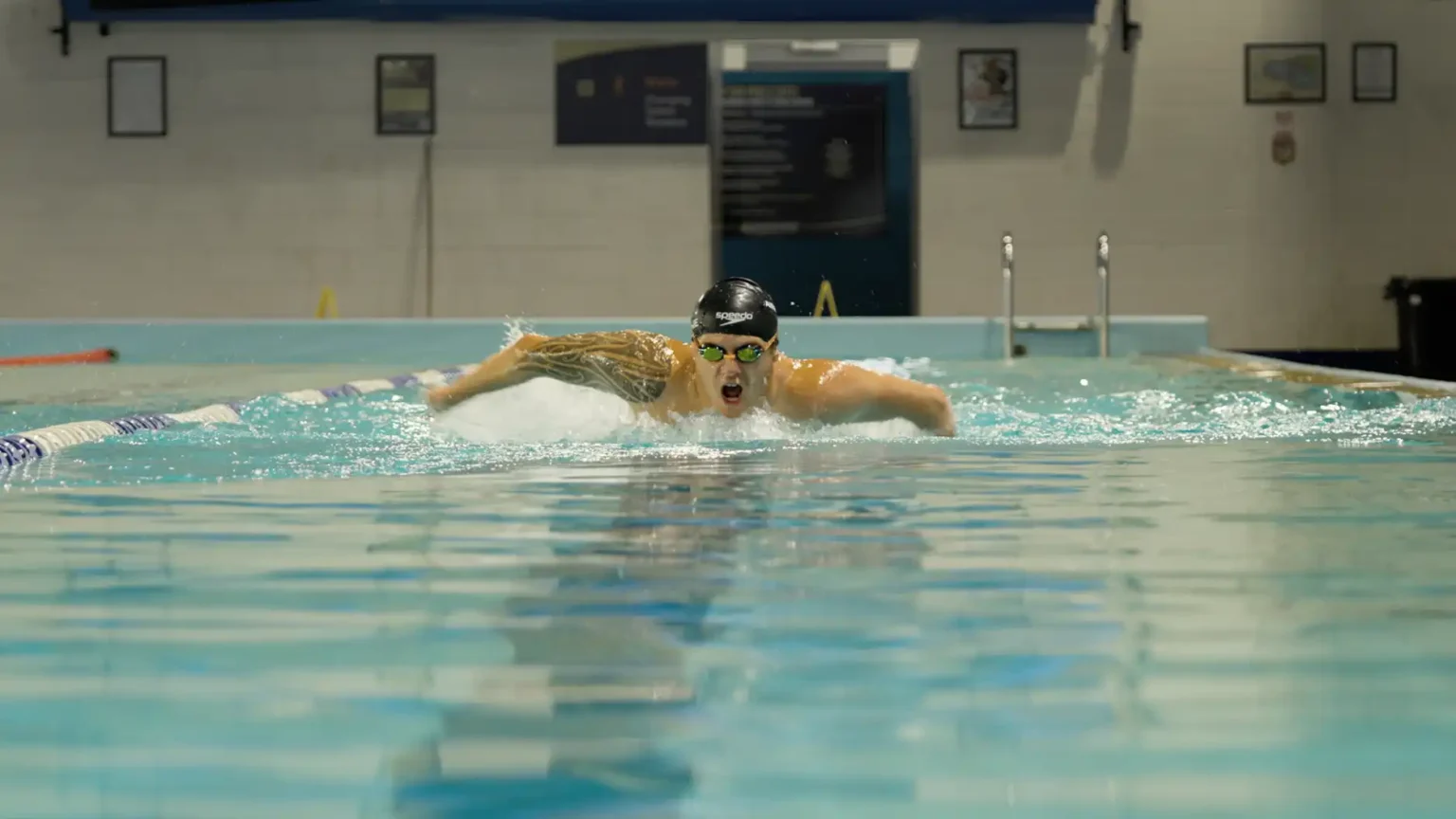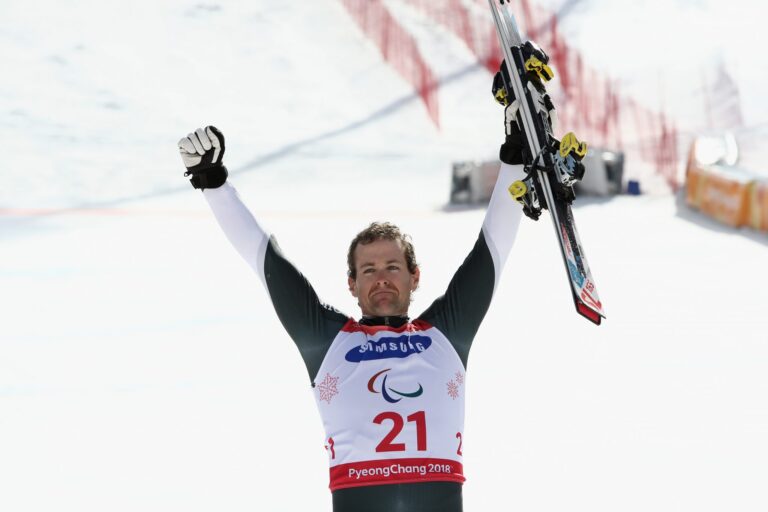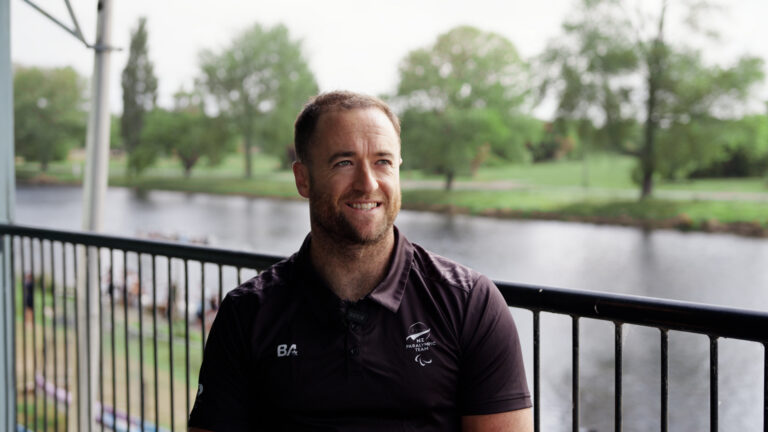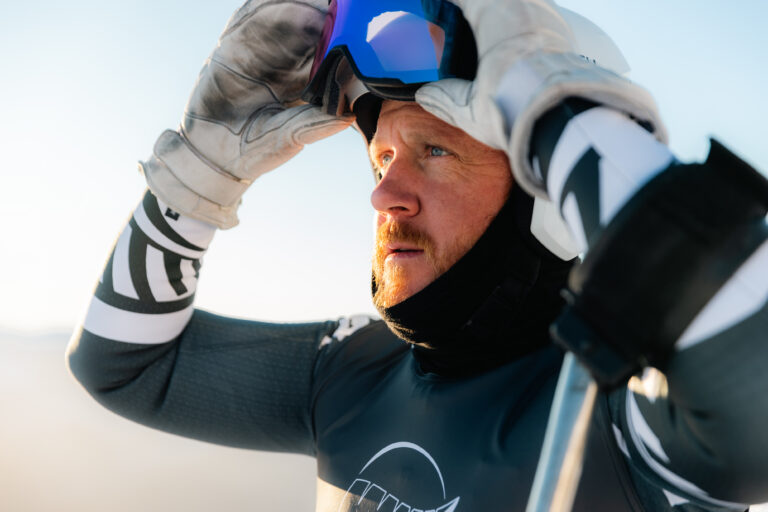Paralympian #164 Cameron Leslie MNZM has secured a trio of Paralympic gold medals during a lengthy sporting career at the top. In the latest of our Where it all Began series we hear from the proud Northlander, who reflects on the significance of a very special Para swimming home.
Perhaps no facility means more to any Paralympian in Aotearoa New Zealand than the Whangārei Aquatic Centre does to Cameron Leslie.
Since first engaging Para swimming as an eight-year-old boy, the intimate venue has proved for more than a quarter of a century the bedrock of his experience in the sport.
“I’ve gone from swimming with volunteer coaches, to paid coaches through to self-directed training,” explains Cameron, 35, of his time training out of Whangārei Aquatic Centre.
“I’ve come here for sanity at times, just to be in the water, and I’ve also worked as a coach out of here where I’ve encouraged others with an impairment to be active. It has so many different touchpoints for me over a long period of time. It has always been a welcoming facility which is close to my heart. It has felt like home for me.”
Starting out as part of a learn to swim group for the disabled, Cameron enjoyed the freedom of being in the water and quickly thrived in the environment.
His initial swim coach, Tony, gave Cameron great encouragement by saying how he “moved well through the water” and with the further backing of his parents he progressed into more structured swimming before later embracing the competitive side of the sport.
Training regularly out of the 25m indoor pool at the Whangārei Aquatic Centre – and previously the 50m outdoor pool, which is now closed – he was blessed in his formative years to train with some great coaches, all of whom helped him on his journey.
“My first swim teacher, Amber, was a lovely young coach who saw what I could do rather than what I could not,” he explains.
“I later worked with another volunteer coach, Jacques, who was loud and passionate. He was probably the first coach who cracked the whip and really pushed me to be better. Under his watch I became a butterfly swimmer. I remember doing countless laps of the pool, which is where my work ethic began, and which allowed me to rise through the ranks.”
Competing in junior-level competitions he went on to make his international debut in Australia – which offered further motivation.
Later the facility provided the foundation for his three Paralympic Games gold medals at Beijing 2008, London 2012 and Rio 2016 but for him, the Whangārei Aquatic Centre is far more than simply a base to pursue his Paralympic dreams.
“There is always a friendly face to welcome me when I walk through the door,” he explains. “It is a place where I am always at peace. Everyone is always very supportive and encouraging. I feel very lucky.”
The facility has changed little over the years – although the loss of the 50m pool was understandably a blow for Cameron – and he has racked up thousands of kilometres in the pool throughout the past 25 years or so. Early mornings and many energy-sapping sessions are the norm – but he does recall one heartwarming memory of training at the facility shortly after his oldest child was born in the countdown to the Tokyo 2020 Paralympic Games.
“My coach at that time stayed with me as part of a 10-day training camp when I was swimming ten times a week,” he explains. “It was one of the hardest times but one of the happiest times because I would go home to a two-week old baby and who gave me a boost.”
Para swimming has given Cameron many accolades on the global stage, and it has given him an identity. It has given him a physical outlet, a sense of mental wellbeing and allowed him to travel independently and traverse the globe.
Yet at the very core of so much of his Para swimming journey has been the Whangārei Aquatic Centre – and Cameron owes it a huge debt of gratitude.
“It is not a state-of-the-art facility, but this tells me is that you don’t need flash facilities to become a good athlete,” he explains. “This place proves that all you need is a body of water to swim in to go about your work. I’ve prepared for my first World Championships in this pool, I’ve prepared for the Paralympic Games here. You don’t need all the bells and whistles. You just need a good training ethic, a good coach and a lane to get the job done.”
If you would like to find out more about Para swimming go here.






























